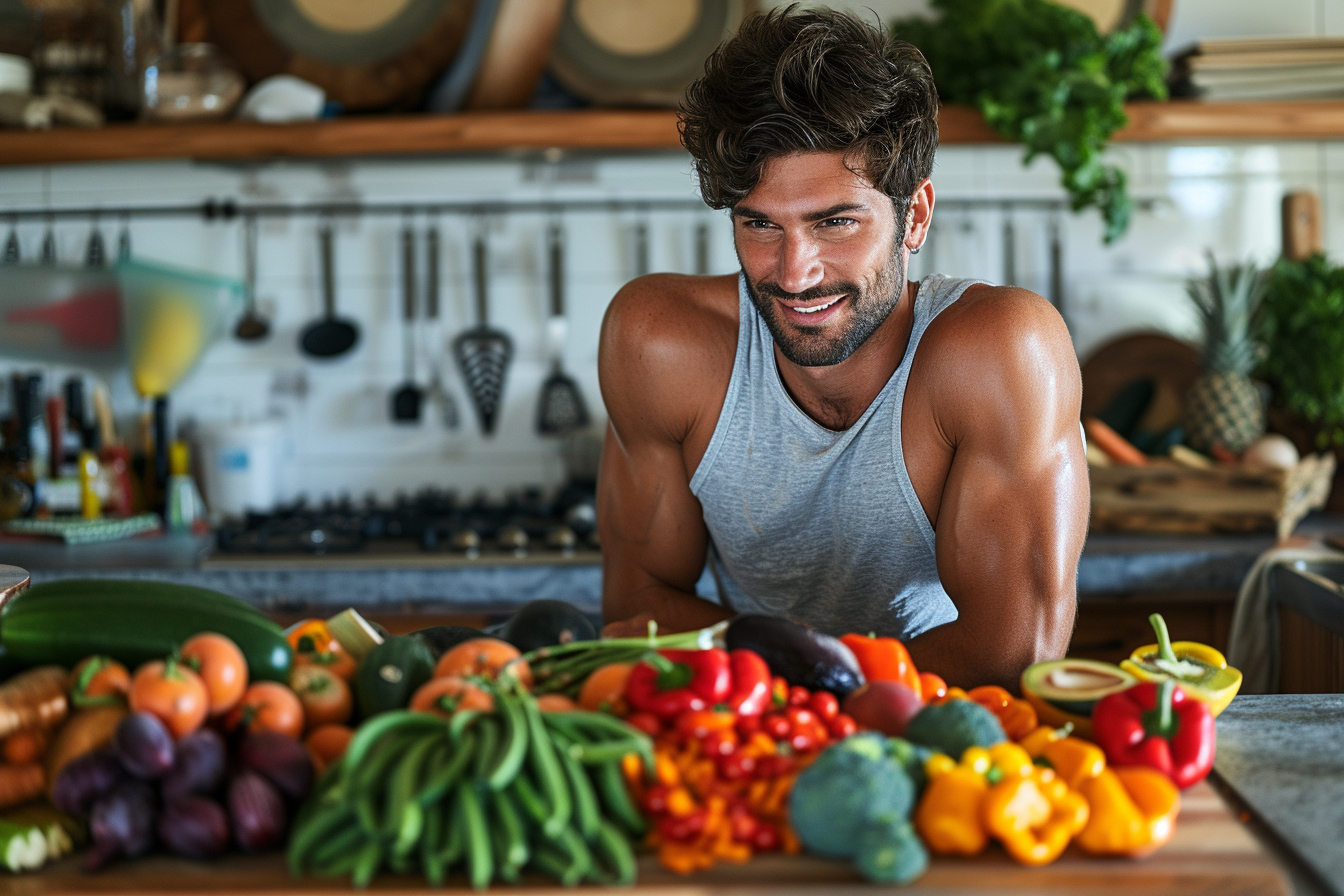Athletes place a high demand on their bodies, necessitating an optimal diet to fuel performance and promote recovery. For vegetarian athletes, it can be a particular challenge to obtain all the necessary nutrients from a plant-based diet. Yet, with careful planning and an understanding of the essentials of sports nutrition, vegetarian athletes can thrive just as well as their omnivorous counterparts.
Essential nutrients for vegetarian athletes
Protein is often the primary concern for athletes when considering a vegetarian diet. It’s vital for muscle repair and growth, and while meat is a common source, there are ample plant-based options. These include lentils, beans, chickpeas, tofu, tempeh, nuts, seeds, and quinoa. Aim to include a variety of these sources to ensure a complete amino acid profile.
Iron is another crucial nutrient, especially for endurance athletes. Vegetarian sources of iron include spinach, lentils, chickpeas, and fortified cereals. It’s important to combine these with foods high in vitamin C, such as bell peppers or oranges, to increase absorption.
Calcium and Vitamin D are essential for bone health. With the absence of dairy, vegetarian athletes can rely on fortified plant milks, leafy greens, and supplements if needed. As for Vitamin D, exposure to sunlight is the best source; however, a supplement might be necessary, particularly in areas with limited sun.
Omega-3 fatty acids are beneficial for heart health, inflammation, and brain function. Flaxseeds, chia seeds, walnuts, and algae-based supplements are excellent vegetarian sources.
Enhancing calorie intake might be necessary for vegetarian athletes, given that plant-based foods are often less calorie-dense than animal-based foods. Whole grains, nuts, seeds, and avocados can help to increase caloric intake healthily.
Nutrient timing and meal planning
Nutrient timing is the strategy of eating certain nutrients at specific times to maximize athletic performance and recovery. For vegetarians, a pre-workout meal might consist of easily digestible carbohydrates, such as fruit or whole grain toast, with a moderate amount of protein like Greek yogurt or a smoothie with plant-based protein powder.
Post-workout, it’s critical for vegetarian athletes to take in adequate protein and carbohydrates to aid in recovery. A lentil salad with quinoa or a tofu stir-fry with vegetables can offer this balance.
For endurance athletes, carbohydrates are the primary fuel during prolonged exercise. Whole grains, sweet potatoes, and fruits should form the basis of meals. Protein and fats will help with satiety and provide a sustained energy source.
Meal planning is indispensable for vegetarian athletes. Creating a weekly menu that ensures a variety of nutrients can prevent deficiencies and enhance overall health. Planning helps with shopping for the right ingredients and also saves time throughout the week.
Supplements and the vegetarian athlete

Supplements can play a role in the vegetarian athlete’s diet, particularly when it comes to nutrients such as B12, iron, and omega-3s. Vegetarian athletes should get their blood levels checked regularly to determine if supplementation is necessary.
Creatine can be less available in a vegetarian diet, as it is naturally found in animal flesh. However, vegetarian athletes can consider a creatine supplement, as it’s been shown to improve high-intensity athletic performance.
Practical tips for vegetarian athletes
Diversity in a vegetarian diet ensures a range of nutrients. Rotate the types of grains, protein sources, and vegetables to keep meals interesting and nutritionally complete.
Snacking smartly can help meet increased caloric and nutrient needs. Trail mixes, fruit with nut butter, and whole grain crackers with hummus are nutritious options that can fuel athletes between meals.
Hydration is essential, and while it’s not specific to vegetarianism, it cannot be overstated. Athletes should remember to drink water throughout the day, not just during and after workouts.
Listening to the body is critical. If an athlete feels fatigued or weak, it might point to a nutritional gap. Keeping a food diary can help track intake and pinpoint areas for adjustment.
The impact of diet on athletic performance
The right vegetarian diet can enhance an athlete’s performance by improving recovery time, boosting energy levels, and reducing the risk of chronic diseases. A well-planned diet can provide all the necessary energy, macronutrients, and micronutrients.
Nutritional adequacy affects not only physical performance but also cognitive function. Mental clarity, concentration, and mood are all influenced by dietary intake.
A vegetarian diet can adequately meet the needs of athletes, supporting peak health and performance. Remember, while a plant-based diet offers many health benefits, it requires thoughtful planning to ensure the inclusion of certain nutrients, particularly protein, iron, calcium, and omega-3 fatty acids.
Adhering to a vegetarian diet can be a fulfilling way to support not only personal health objectives but also ethical and environmental concerns. With awareness, education, and a little creativity, maintaining an optimal vegetarian diet can be both an enjoyable and enriching path for the athletic journey.

Leave a Reply